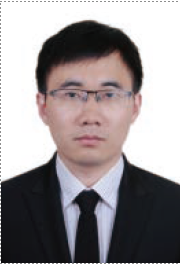Haitao Wang1* ,Xiaoyu Chong1, Mengdi Gan1, Tianlong Lu1, Yiwei Wei1, Jing Feng1
1Key laboratory of material genetic engineering, Kunming University of Science and Technology, Kunming, Yunnan, China
EXTENDED ABSTRACT: For the hot-end parts of aerospace vehicles, thermal barrier coating (TBCs) is an important method to ensure their safe, stable and long-term service. However, one of the main reasons for the failure of TBCs is that the thermal stress generated during its preparation and service process exceeds the interface bonding strength and damage tolerance. At present, there is no efficient and accurate experimental method to quantify the thermal stress of thermal barrier coating. Based on the concept and method of material genetic engineering, we have compiled the core software based on the coupling of first-principles calculation, genetic algorithm-support vector machine (GA-SVR), multi-field coupled finite element simulation and thermal shock test. This software is performed for the high-throughput and intelligent calculation for key parameters based on the automatic transmission of data flow and correlation modeling. The database for the parameter, experiments and models are constructed. In this work, the rapid quantitative calculation and evaluation method for thermal stress of thermal barrier coating is preliminarily established, which provides theoretical, methodological and tool support for the selection of new long-life thermal barrier coating materials, coating structure design and coating process improvement.
Keywords: Thermal barrier coating; First-principles calculations; Finite element simulation; Machine learning; Thermal stress

Xiaoyu Chong, a professor and doctoral supervisor at Kunming University of Science and Technology, a winner of the Youth Support Project of China Association for Science and Technology. He used to be an assistant research professor at Pennsylvania State University, and his co-tutor was Professor Zi-Kui Liu, the founder of "Materials Genome". His research interest is high-throughput first-principle calculations coupling with CALPHAD modeling and machine learning for the design of noble metal materials, high temperature structural ceramics and coating. He is the member of Youth Editorial Committee of Rare Metals, member of Computational Materials Branch of China Materials Research Society. Up to now, he has published more than 100 papers on JACS, Acta Mater, Scripta Mater, APL and other journals as the first or corresponding author, including 4 cover articles and 1 editor's choice paper.